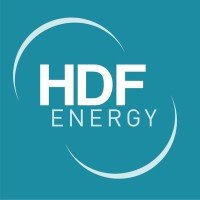Octopus Hydrogen partners with BayWa; Rheinmetall receives order
Octopus Hydrogen aims to develop and establish a decentralised model for green hydrogen production.

Octopus Hydrogen and BayWa r.e. have signed an MoU to collaborate on innovative green hydrogen production facilities at renewable project sites across the UK.
The strategic partnership will see Octopus Hydrogen install electrolysers, compression and mobile hydrogen storage alongside selected BayWa r.e. solar and wind projects.
Initial projects which have been identified within the growing BayWa r.e. project pipeline in the UK will have the potential to produce up to 6,500kg/day of green hydrogen, with the first deliveries expected next year.
Octopus Hydrogen will produce green hydrogen to be stored and then distributed to customer sites, offering an end-to-end hydrogen supply solution and supporting the decarbonisation of local sectors such as commercial transport.
BayWa r.e. is already involved in various initiatives dedicated to promoting the important role of renewable hydrogen to meet decarbonisation goals, such as its SinneWetterstof Hydrogen Pilot Project in the Netherlands.
Rheinmetall receives fuel cell components order
Rheinmetall AG (Düsseldorf-based tech enterprise) has received an order in the two-digit million-euro range to supply fuel cell components.
The order for the high-voltage version of the hydrogen recirculation blower is worth a figure in the multimillion-euro range. Full-scale production commences in 2024. Additional orders from two fuel cell makers for over 300,000 cathode valves represent a lifetime sales volume in the two-digit euro-million zone. Production lines at Rheinmetall’s plant in Berlin will be adapted for larger full-scale output volumes starting in 2023.
The hydrogen recirculation blower is installed on the anode side of the fuel cell to enhance the effective use of hydrogen in the fuel cell. It enables the controlled return of unused hydrogen to the stack, resulting in greater efficiency and thus extending the vehicle’s range. In addition, the blower assures a more homogenous distribution of hydrogen in the cell, leading to a longer operating life.
The valve systems (cathode flaps) ordered from Rheinmetall regulate the flow of fresh and exhaust air mass streams and insulate the fuel cell stacks on the cathode side at the inlet and outlet points from the ambient atmosphere.
